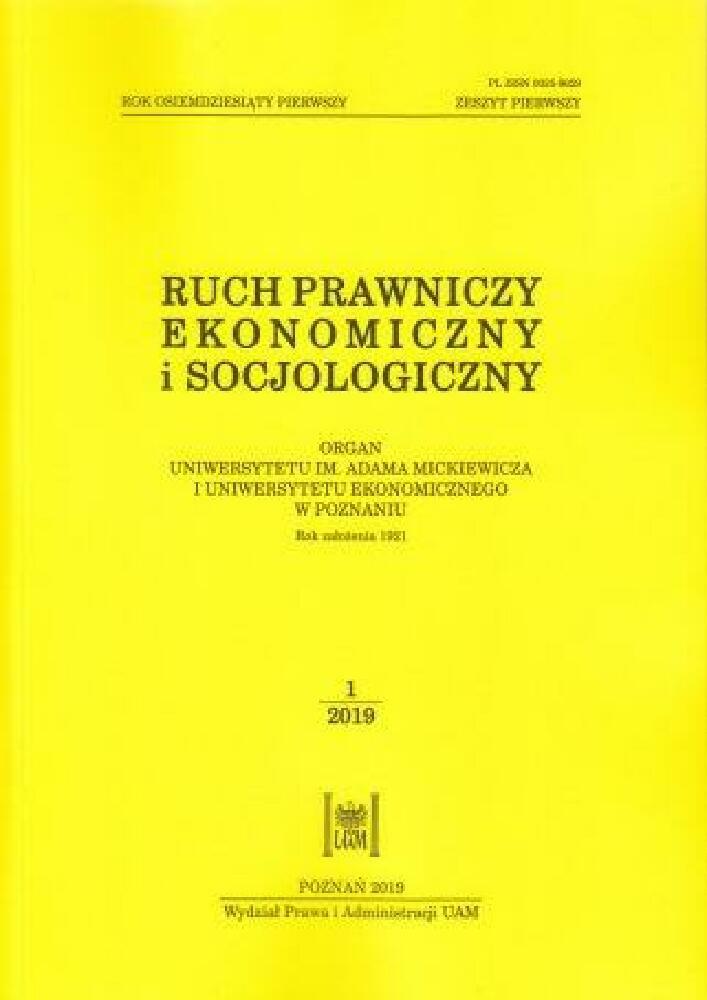Abstract
Article 4 ICESCR is rarely applied or commented on. One of the most controversial issues regarding the understanding and application of this provision is its relation to the principle of the progressive exercise of rights covered by the Covenant. The key question comes down to whether or not any shortcomings in the possibility of exercising the rights contained in the Covenant, and thus also shortcomings related to the limited availability of resources and the resulting inability of the state to fully implement any of the rights or freedoms, should be understood as limitations and thus evaluated under Article 4 and the admissible criteria for limitations containedtherein. The question becomes even more pertinent with regard to the introduction of so-called retrogressive measures, which are introduced by states when resources are limited. Should such measures be assessed under Article 4 ICESCR and the criteria stipulated therein, or do they fall under a different order and thus need to meet other conditions? This paper is an attempt at a delimitation of the issues associated with the lack of full enjoyment of Covenant rights by entitled persons due to limited resources, and as a result of other legitimate aims pursued by the States. The article shows how the justification of such a delimitation is based on travaux préparatoires, on the text of the Covenant itself, and on its protective function. In this paper, the way in which this delimitation can be made more precise by proper application of the communications procedure, especially when it comes to a proper understanding of Article 8(4) of the Optional Protocol, will be proposed.
Funding
National Science Centre Research Grant No. DEC-2012/05/B/HS5/00544
References
Alston, P., Quinn, G. (1987). The nature and scope of State Parties’ under the International Covenant on Economic, Social and Cultural Rights. Human Rights Quarterly 9(2), 1987: 156–229.
Beiter, K.D. (2006), The Protection of the Right to Education by International Law, Leiden–Boston 2006.
Chenwi, L. (2009). Correcting the historical asymmetry between rights: the Optional Protocol to the International Covenant on Economic, Social and Cultural Rights. African Human Rights Law Journal 9(1): 23–51.
Coomans, F. (2002). In search of the core content of the right to education, [w:] A.R. Chapman, S. Russell (eds.), Core Obligations: Building a Framework for Economic, Social and Cultural Rights. Antwerp–Oxford–New York 2002: 159–182.
Coomans, F. (2004). Exploring the normative content of the right to education as a human right: recent approaches. Revista Persona y Derecho 50: 61–100.
Courtis, C. (2010). Commentary on the Optional Protocol to the International Covenant on Economic, Social and Cultural Rights, http://icj.wpengine.netdna-cdn.com/wp-content/uploads/2009/07/Commentary-OP-ICESCR-publication-2009-eng.pdf [dostęp: 2.02.2018].
Craven, M.C.R. (1998). The International Covenant on Economic, Social, and Cultural Rights. A Perspective on Its Development. Oxford.
Garlicki, L. (2001). Przesłanki ograniczania konstytucyjnych praw i wolności (na tle orzecznictwa Trybunału Konstytucyjnego). Państwo i Prawo 54(10): 5–24.
Garlicki, L., Wojtyczek, K. (2016). Artykuł 31, [w:] L. Garlicki, M. Zubik (red.), Konstytucja Rzeczypospolitej Polskiej. Komentarz. Warszawa: 96–100.
Griffey, B. (2011). The ‘reasonableness’ test: assessing violations of state obligations under the Optional Protocol to the International Covenant on Economic, Social and Cultural Rights. Human Rights Law Review 11(2): 275–327.
Hauser, A. (2018). Protokół fakultatywny do Paktu, [w:] Z. Kędzia, A. Hernandez-Połczyńska (red.), Międzynarodowy Pakt Praw Gospodarczych, Socjalnych i Kulturalnych. Komentarz. Warszawa: 801–836.
Jayawickrama, N. (2002). The Judicial Application of Human Rights Law. National, Regional and International Jurisprudence. Cambridge.
Jóźwicki, W. (2018). Artykuł 4. Klauzula limitacyjna, [w:] Z. Kędzia, A. Hernandez-Połczyńska (red.), Międzynarodowy Pakt Praw Gospodarczych, Socjalnych i Kulturalnych. Komentarz. Warszawa: 186–214.
Kędzia, Z. (2014). Reinforcement of economic, social and cultural rights. European Yearbook on Human Rights 14: 23–37.
Kędzia, Z. (2018). Wprowadzenie do Międzynarodowego Paktu Praw Gospodarczych, Socjalnych i Kulturalnych, [w:] Z. Kędzia, A. Hernandez-Połczyńska (red.), Międzynarodowy Pakt Praw Gospodarczych, Socjalnych i Kulturalnych. Komentarz. Warszawa: 1–59.
Leckie, S. (1998). Another step towards indivisibility: identifying the key features of violations of economic, social and cultural rights. Human Right Quarterly 20(1): 81–124.
Mahon, C. (2008). Progress at the front: the Draft Optional Protocol to the International Covenant on Economic, Social and Cultural Rights. Human Rights Law Review 8(4): 617–646.
Müller, A. (2009). Limitations to and derogations from economic, social and cultural rights. Human Rights Law Review 9(4): 557–601.
Nolan, A. (2014). Budget analysis and economic and social rights, [w:] E. Riedel, G. Giacca, C. Golay (eds.), Economic, Social, and Cultural Rights in International Law: Contemporary Issues and Challenges. Oxford: 369–390.
Saul, B., Kinley, D., Mowbray, J. (2014). The International Covenant on Economic, Social and Cultural Rights. Commentary, Cases Materials. Oxford.
Wojtyczek, K. (1999). Granice ingerencji ustawodawczej w sferę praw człowieka w Konstytucji RP. Warszawa.
Wróbel, A. (2013), Art. 52. [Zakres i wykładnia praw i zasad], [w:] A. Wróbel (red.), Karta Praw Podstawowych Unii Europejskiej. Komentarz. Warszawa: 1343–1384.
Young, K.G. (2008). The minimum core of economic and social rights: a concept in search of content. Yale Journal of International Law 33(1): 113–175.
License
Copyright (c) 2019 WPiA UAM

This work is licensed under a Creative Commons Attribution-NonCommercial-NoDerivatives 4.0 International License.





